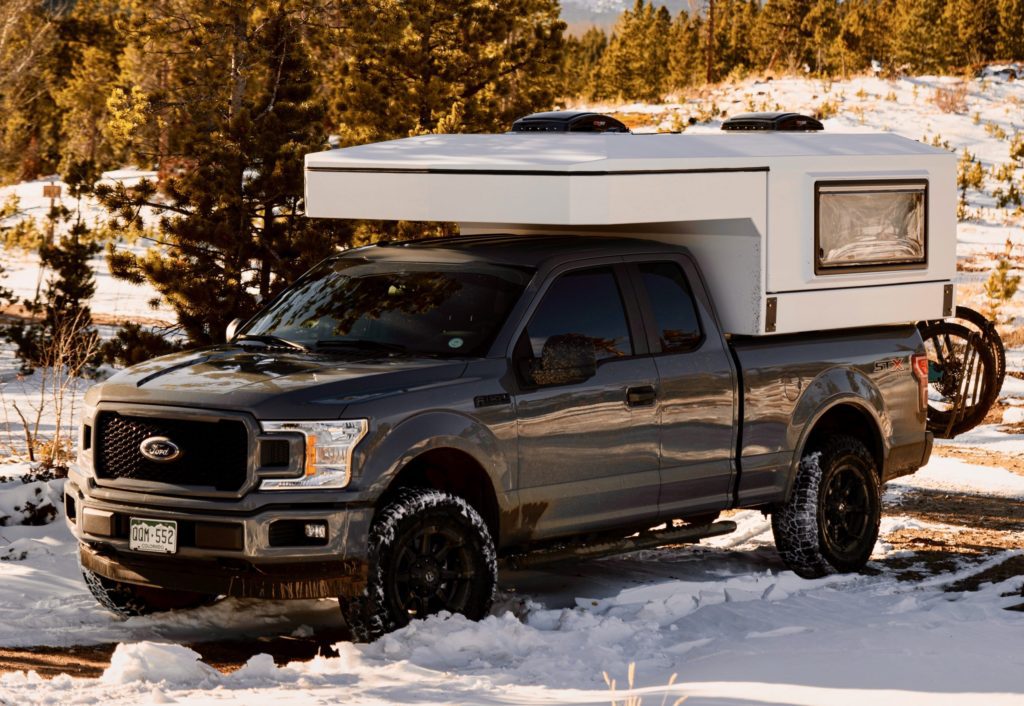“Do I give up my truck bed or do I give up my hitch?”
Many people are able to narrow their camper options down to a truck camper or a teardrop trailer camper. This decision point defines the path forward for the rest of your camper decisions. The choice is completely subjective, and it really comes down to 10 key considerations:
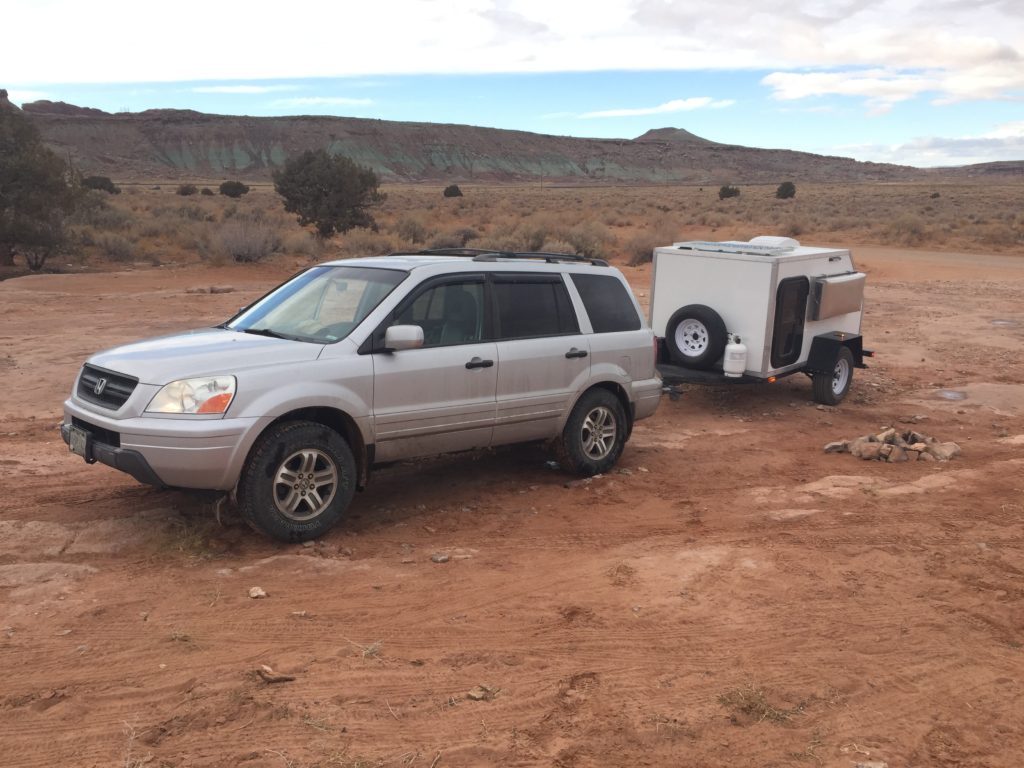
1. Know What Type of Camper You Are
Light and fast, “in-and-out” camper. If you mostly use camping as a means to sleep closer to outdoor adventure objectives, you will likely benefit from the low camp footprint and setup time commitment of a truck camper. These are ideal for weekend warriors and people who need to sneak their adventures in during short time windows.
Leisure camping and like to stay in one place for multiple days. You should strongly consider a teardrop trailer camper to reserve your campsite and minimize setup and teardown for side adventures.
2. Utility
Before building or buying a camper you need to seriously consider the type of use your camper is going to see. Dreaming is fun, but take a moment to list the ways you can see yourself realistically using your camper. Can your vehicle tow a camper without an issue up steep hills? What is the most extreme terrain the camper will see? How much time is the camper going to spend on and off of the road? Do you need to be able to tow motorcycles or ATV’s? Is this a four season camper? These are just a few of the questions you need to ask yourself to find the camper that provides the right utility for you.
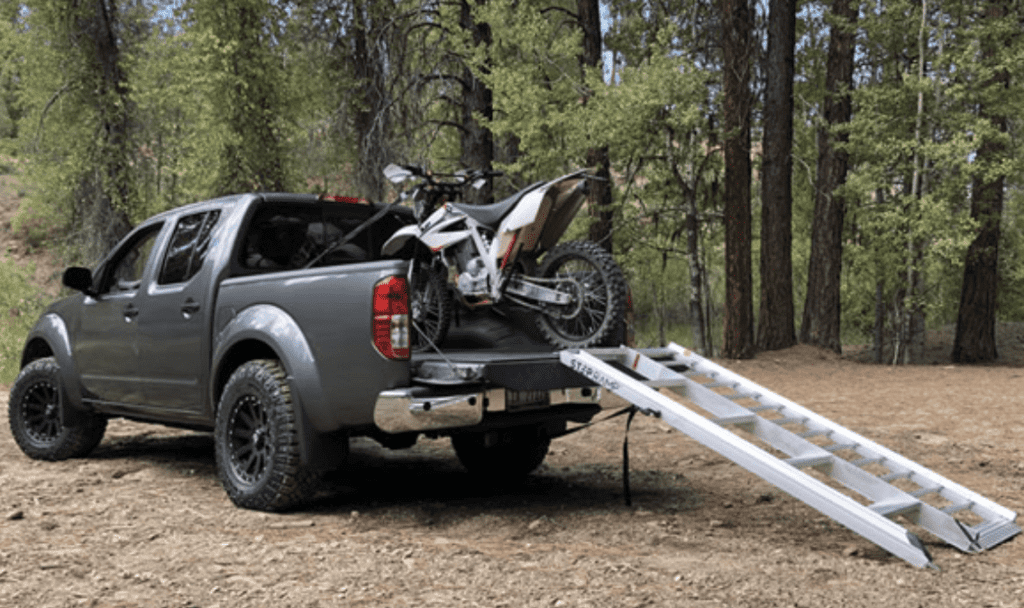
Having a bed allows you to haul toys to the campground. Credit: Dirtbike Sam
3. Camping Conditions and Seasons
If you’re new to the camper world, it is likely that you have not seen how dirty a trailer camper gets when towing in nasty, snowy, and salty conditions. If you have any desire to use your camper in all four seasons and you do not live in an area with a mild climate, then you should rule out any kind of trailer camper right away. Towing in the snow is tricky, dirty, can be dangerous, and is generally not a particularly pleasant experience overall. On the other hand, a truck camper will actually increase your truck’s performance in the snow to an extent because of the additional weight (and thus traction) on the rear tires. Truck campers have the added benefit of staying clean by avoiding most of the road grime that gets thrown up by the vehicle.
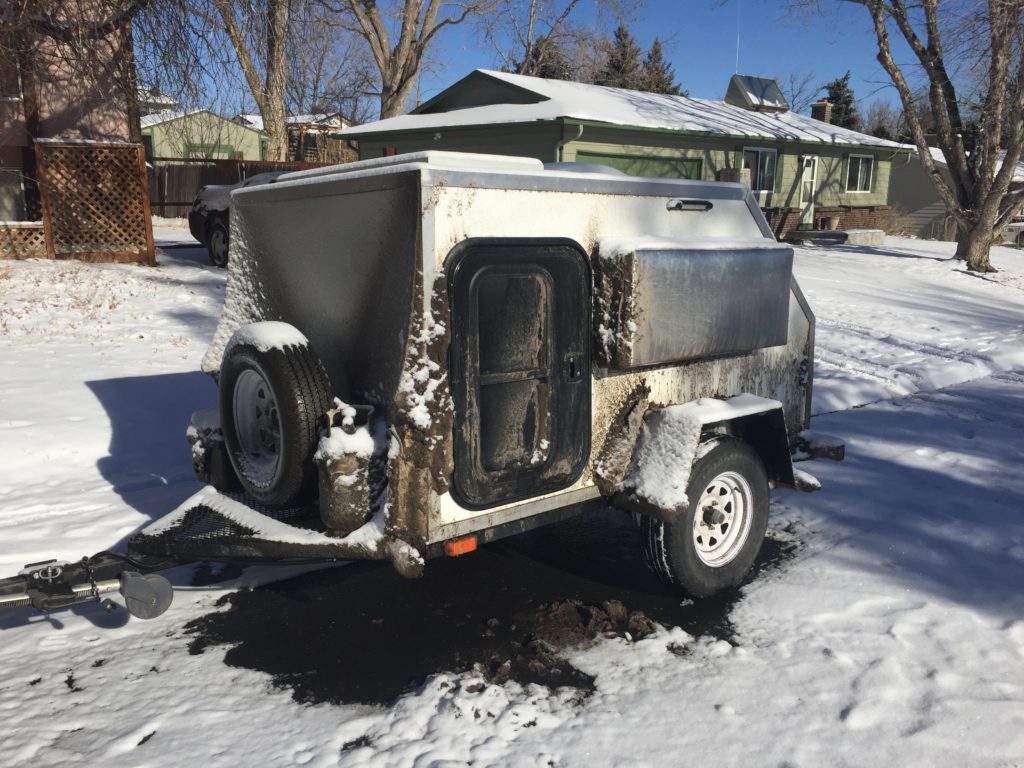
My teardrop caked in winter road grime after driving through a snowstorm.
4. Garage Space
A camper trailer is going to take up an entire parking spot in your garage. If this is fine with you, then that is not an issue. Some HOA’s will not allow you to park your camper trailer on the street or in your driveway. On the flip side, many truck campers will make your truck too tall to fit into a standard garage when mounted. This means you need to get creative with your camper storage solutions when it’s time to put the camper away.
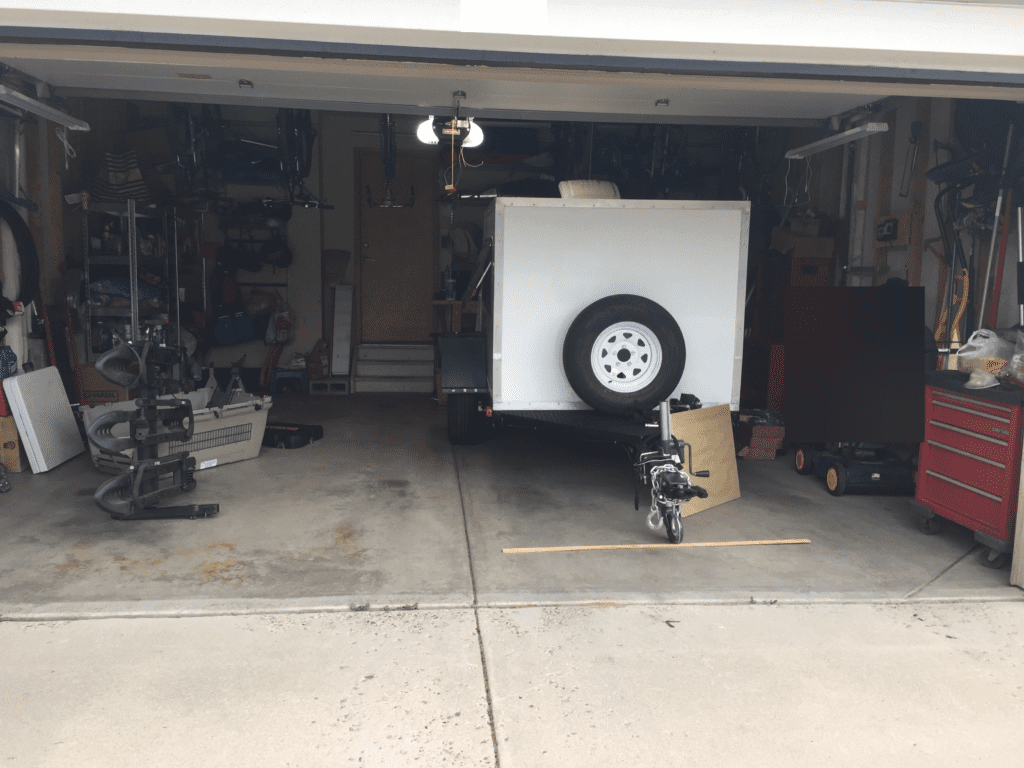
The camper trailer gets half of the garage.
5. Establishing a Base Camp
This is where teardrop trailer campers shine. You can drop all of your camping equipment in one location and you essentially have a saved camping spot to come back to when you are done with your day’s adventures. Anyone who has camped in popular National Parks such as Glacier or the Tetons knows that finding camping after 1PM can be a nightmare. However, the kind of adventurer you are can also change your needs. It is also important to note that truck campers can also be moored at a campsite with the jacks supplied by the manufacturer, but it takes a bit more time and isn’t quite as inherently stable.
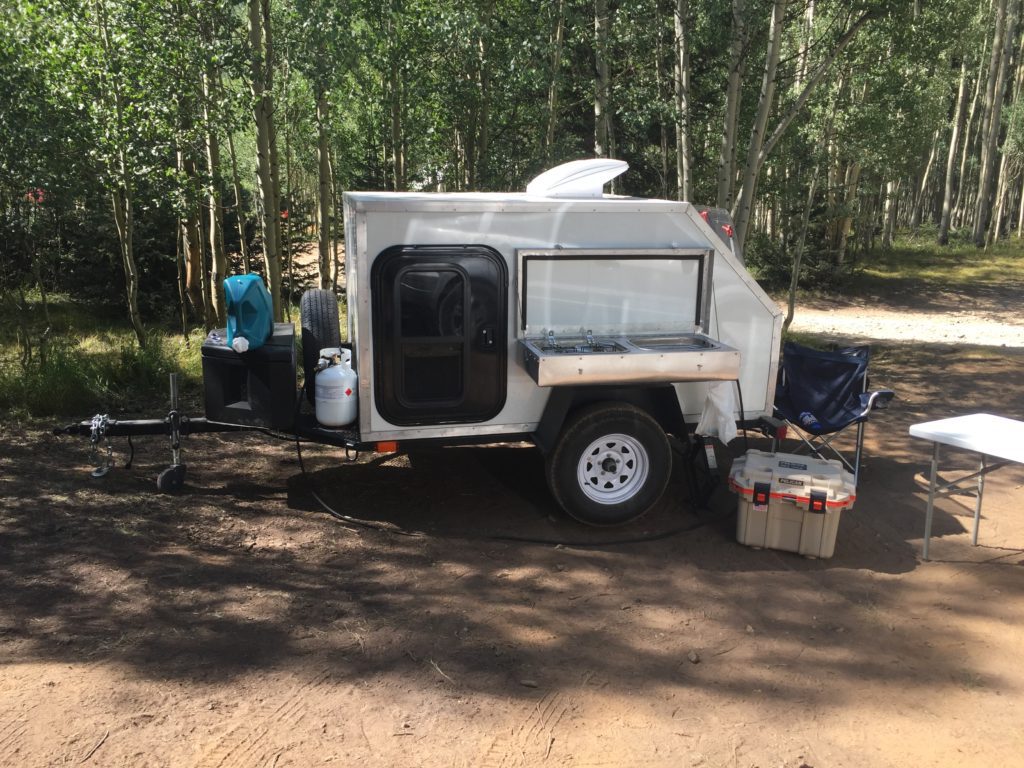
Base camp set up!
6. Off Road performance
Regardless of manufacturer claims, even “offroad teardrops” typically severely limit the outdoor trails and access you have while camping. Truck campers are almost always the better option for off road adventures if you have a truck. If you are interested in reading about this further, we speak more to this topic in The dirty truth about offroad teardrops.
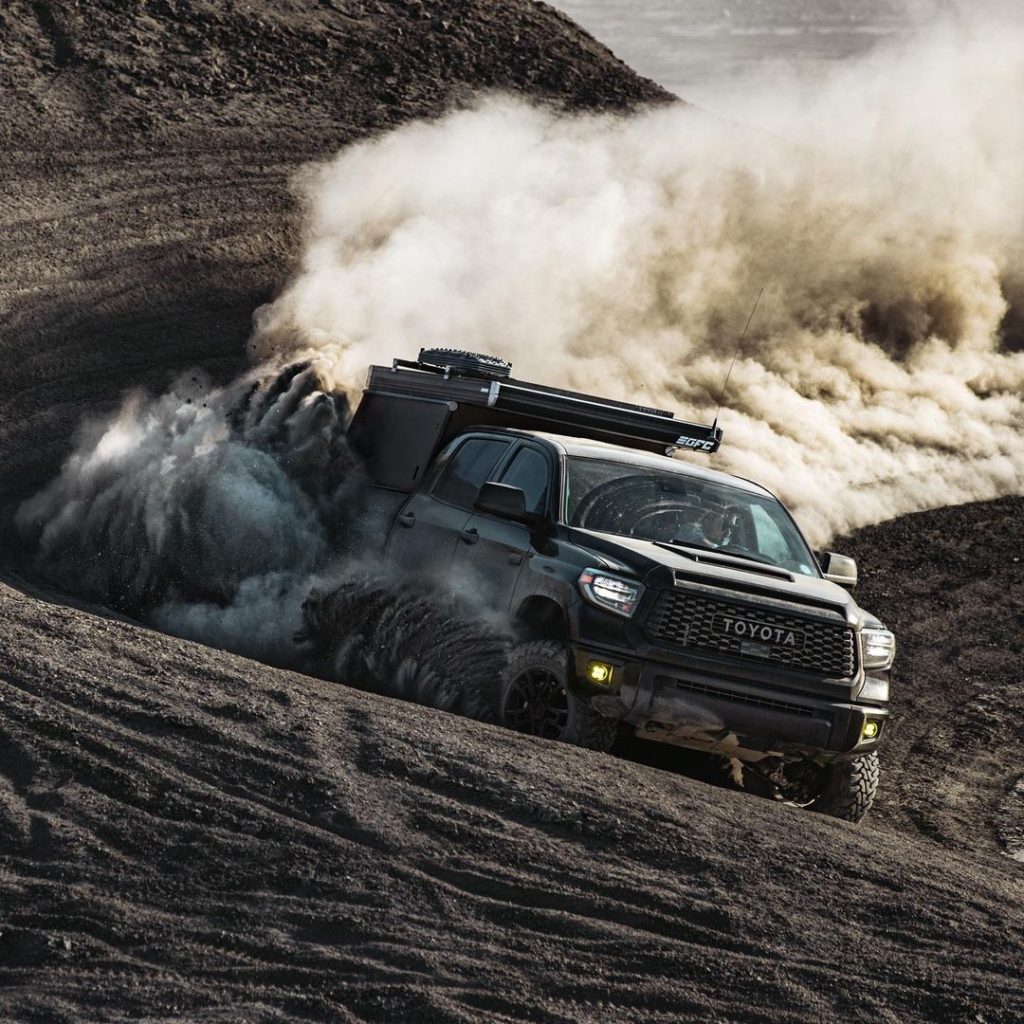
Can’t do this with a trailer. Credit: Go Fast Campers.
7. On Road Living
Conversely, if you are spending most of your time on the road, a teardrop trailer camper may actually be your best choice as a camper. It is easy to pull over in any rest stop, unlock your camper, and go to bed. Zero setup required. A truck camper will take a bit more time and effort to set up on the road when packed for an adventure.
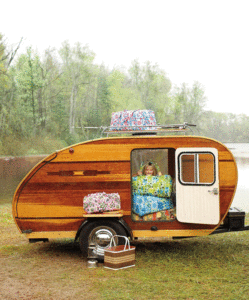
With a camper trailer, bedtime is just a rest stop away. Credit: Poppytalk
8. Fuel Economy
Many people worry about fuel economy when going on camping trips, and rightly so! A vehicle with a 16 gallon gas tank getting an average of 12mpg will require over two more gas stops on a 1000 mile drive than a vehicle averaging 19mpg! That means more frequent stops and higher gas expenses.
However, the biggest influence is not necessarily the difference between a truck camper and a teardrop trailer camper. Rather, the drag profile and weight of your camper relative to your vehicle are the most important factors. Learn more about minimizing drag and increasing your fuel economy here!
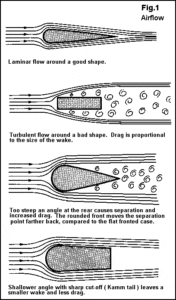
There is a reason teardrops are named as such. Credit: Tony Foale Designs.
9. Time Spent in Urban areas
Towing a camper through a city is stressful and intense, and finding parking may be near impossible. A truck with a truck camper will have a much easier time navigating the urban labyrinth while mitigating the numerous parking issues that appear with trailer campers (ever tried to U-turn a camper in a city? It’s not fun/doesn’t work).
10. Stealth
If the ability to stealth camp in populated areas is important to you, then you should look to a truck camper or a van. Teardrop trailer campers are anything but stealthy and it’s difficult to find an urban spot to park them in without getting ticketed anyways, so why bother?
An additional consideration: Availability/Manufacturer Timeline
In the height of the covid-19 pandemic, many truck and trailer camper manufacturers were taking orders for months to years from order date. If you are looking to camp ASAP, you might be able to build your own camper faster than buying a brand new one (I did). You should also consider looking into purchasing a used camper that has been taken care of. See our article on used camper purchase guidelines.


